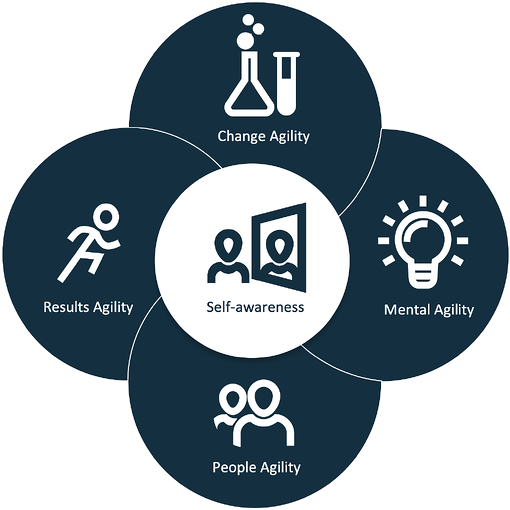How to Develop Learning Agility - Tips from a Psychologist
If you have completed a Learning Agility assessment, then you have a clear picture of the extent to which you are ready for the inevitable changes within roles, functions and organisations. These tips and tricks are designed to help you develop the “skill” of Learning Agility further.
Defining Learning Agility
Learning Agility is the ability to quickly develop new effective behaviour based on new experiences. Those individuals who are high on Learning Agility are likely to be more open to learning in general. This makes them likely to learn more from new situations, seek out new challenges, look for feedback to learn from, recognize patterns in unfamiliar situations and effectively engage others in understanding experiences.

Self-Awareness and Learning Agility
Self-awareness acts as an enabler for developing Learning Agility in general. A high score on Self-awareness means that you have a clear picture of your own strengths and development points. It also means that you have a focus on continuing to develop yourself.
Because you are able to pay attention to your personal development and consciously analyse your strengths and weaknesses, you can make better use of your innate talents. Just by being aware of your own Learning Agility scores, and taking that into account, you are already working on increasing your Learning Agility.
Your Self-awareness score affects all other Learning Agility dimensions. After all, if you do not want to develop or you do not know your own qualities, you are less open to learning. Being aware of your Self-awareness makes sense. This can already be done very easily by, for example, regularly asking your colleagues how they found your performance in a collaborative team effort.. You can also schedule time for reflection where you can consider your progress and your approach to your work. The end of the work week is an ideal time for this.
Development Tips per Learning Agility Dimension
Learning Agility consists of a number of dimensions. These dimensions provide insight into your preferred learning approach. Besides the dimension of Self-awareness discussed above, there are four additional dimensions: Change Agility, Mental Agility, People Agility, Results Agility. Your predisposition and motives determine to what extent you tend more towards each of these dimensions. Below you will find tips per dimension to improve your Learning Agility.
Change Agility:
-
From time to time, pick up a project where you can not fall back on your existing knowledge and experience.
-
When you have to pick up new work and you feel unclear or stuck, think about your reasons for this.
-
Try to work with colleagues who are more inclined to take risks.
-
Identify three advantages and three disadvantages with each change. You can profit from the benefits and you can use the disadvantages to analyse the situation.
Mental Agility:
-
Ask questions if things are unclear and make sure that you always have a clear picture of what has been discussed.
-
Make a list of questions for each discussion that you want answered on the subject.
-
Plan moments to think about your own approach and what can be improved.
-
Make a SWOT analysis of your own department.
-
Take the time to puzzle out problems that may seem ambiguous or complex at first glance. Breaking the problem into smaller pieces usually makes this process easier.
People Agility:
-
Consider what you can learn from each of your team members, and make a point to try and do so. You can approach this formally (asking them to teach you) or informally (observing their actions and behaviour).
-
Try not to give counter-arguments for one day. Instead, only ask counter-questions and find out which new insights you have come up with.
-
Identify which information you are missing and which questions you could ask colleagues.
-
Organize a (short) session to share knowledge and experience about a set topic.
Results Agility:
-
Consider how you experience pressure and how you are most affected when changes occur in the organisation/in your role.
-
Set yourself a list of short and medium-term objectives. Work towards these objectives, and involve your supervisor and team where necessary.
-
Keep track of the results of the projects you are part of.
-
If your attention becomes fragmented by less important secondary goals, ask for help from your supervisor.
Author
Lumenii's team of expert psychologists regularly collaborate to share their ideas and knowledge. The latest case studies, thought leadership, and research.